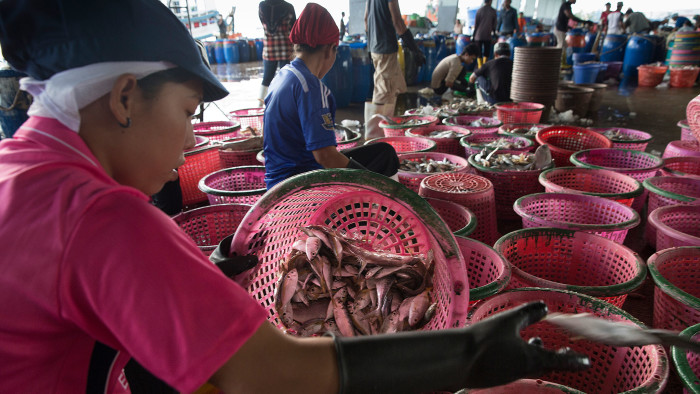Tighter standards of conduct for supply chains

Roula Khalaf, Editor of the FT, selects her favourite stories in this weekly newsletter.
In February, France introduced legislation requiring French companies of a certain size not only to report on efforts to remove environmental, human rights and other violations from their global supply chains, but also to implement plans to prevent such abuses.
Under the Devoir de Vigilance — or duty of care — law, victims of a company that breaches this obligation can seek damages for negligence.
While existing laws in jurisdictions such as California or the UK require public reporting on corporate efforts to remove slavery or human trafficking from supply chains, French law tightens the rules as it sets a standard of conduct for which lack of implementation can be considered to be a breach of legal obligations.
“Now, if they make a statement about a policy to address unethical recruitment there is an obligation to actually follow it through,” says Ed Marcum, managing director of Humanity United, a human rights-focused foundation.
As well as legal consequences, companies face other problems if unethical practices such as child labour or corrupt payments are discovered in their operations.
“You could end up in court. But there’s also the reputational damage, and you could potentially lose a contract with the buyer of your product,” says Sean Ansett, managing partner at Stake Advisors, a sustainability consultancy.
Formerly, it was easier for multinationals to ignore what went on in suppliers’ operations, particularly those in developing countries. However, new technology and social media have enabled campaign groups, customers and victims themselves to broadcast the evidence of human rights abuses or sweatshop conditions around the globe.
In this era of transparency, governments have been tightening the rules. Since 2010, for example, any retailer or manufacturer doing business in California with an annual global gross income of more than $100m must disclose its efforts to eradicate slavery and human trafficking from its supply chain under the Transparency in Supply Chains Act.
Similarly, the UK’s Modern Slavery Act requires companies doing business in the UK with turnover of at least £36m to report publicly on their efforts to ensure there is no slavery in their supply chains.
While the Guiding Principles on Business and Human Rights, which the UN Human Rights Council endorsed in 2011, are not legally binding, many countries are developing national action plans that include building the regulatory frameworks around the guidelines.
Meanwhile, some countries also have in place laws, such as the Foreign Corrupt Practices Act in the US and the UK’s Bribery Act, that are designed to prevent supply chain transgressions regardless of where they take place.
“All of those policy changes, and changes to the legal environment in which companies operate, have forced them to pay attention to these issues,” says Mr Marcum.
But while regulators are pressing companies to run supply chains that are free from child labour, slavery, corruption and other unethical or illegal practices, the practicalities are tricky.
In the electronics sector, for example, product parts are sourced from thousands of suppliers around the world.
In the seafood industry, which has come under scrutiny for suspected slavery, tracing the origin of products is tough when supply chains include businesses from fishmeal producers and fishing fleets to processing and packaging companies.
One challenge is keeping track of every contractor and subcontractor in a supply chain. “Even in the garment industry, which has been tackling this for over 20 years, companies have still not mapped their supply chains,” says Mr Ansett. “And a large number don’t have in-house sourcing functions but use agents.”
Some commentators, such as Richard Locke, a labour rights scholar, argue that the voluntary practice of commissioning third-party audits of factories and other facilities, which companies have used to try to eliminate ethical abuses from their supply chains, have had limited effects.
When it comes to tackling corruption and money laundering, technology could hold an answer. At AB InBev, the world’s biggest brewer, the legal and compliance team has developed a data analytics tool called Project Lantern to identify patterns in transactions that might indicate the need for further investigation.
“The algorithms look at the data and can identify certain vendors where, let’s say, payments are done on a rushed basis, requested in cash or are in round numbers,” says John Blood, general counsel and company secretary. That might be a flag for a risk factor in a jurisdiction.”

Comments